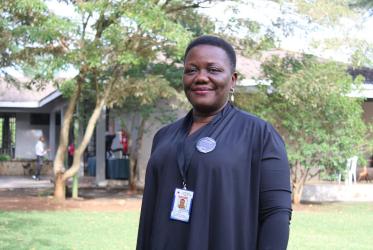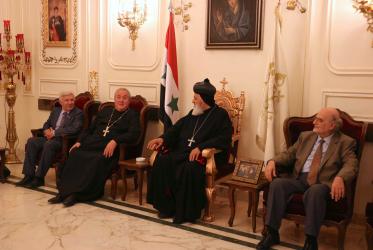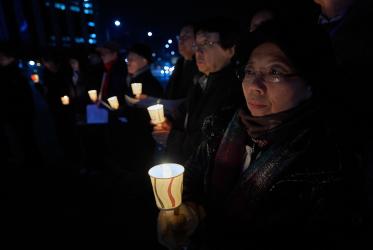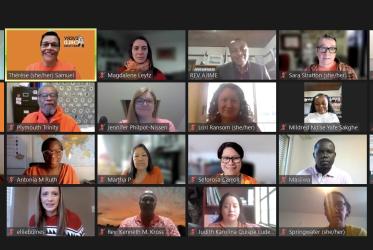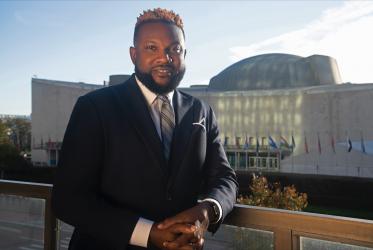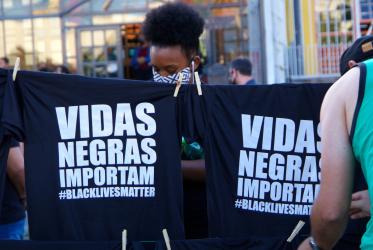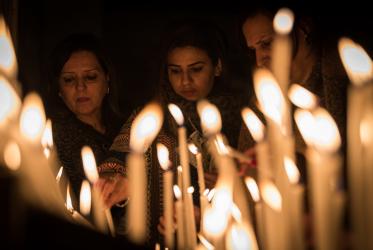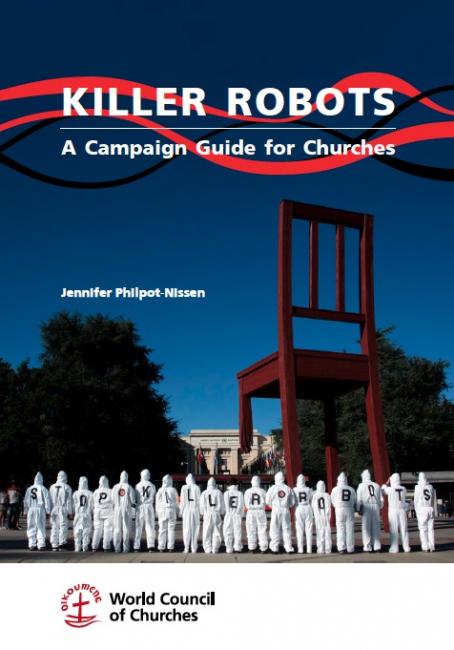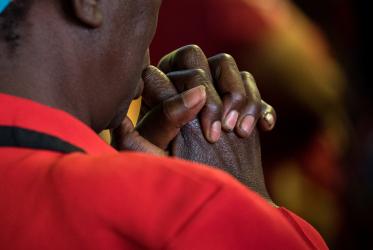Displaying 21 - 40 of 52
09 November 2022
In New York City, the spirit of Thursdays in Black is thriving
06 October 2022
Ukraine: Responding to humanitarian need
08 September 2022
Strengthening Christian Perspectives on Human Dignity and Human Rights
Perspectives from an International Consultative Process
19 August 2022
“My hope is in you”—youth in the Holy Land carry the future
17 August 2022
Webinar remembers past massacres in Europe
16 December 2021
Webinar explores intersection of debt cancellation and anti-racism
09 December 2021
Past massacres in the Middle East: “this should never be forgotten”
09 December 2021



